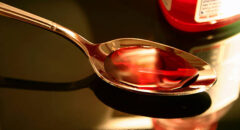tongue (sublingual), compared with a placebo, the data shows.
Patients who used nasal spray or sublingual zinc were nearly twice as likely to recover during the first week of illness as those who used a placebo, the study authors noted in a journal news release. And 19 more patients out of every 100 were likely to still have symptoms a week later if they didn’t use zinc supplements.
Zinc was not associated with reduced average daily symptom severity, but it was associated with a clinically significant reduction in symptom severity on the third day of illness, Hunter’s team found.
No serious side effects were reported among zinc users.
RELATED: 6 Medicine Cabinet Essentials You Need Now
Should you take zinc?
All in all, zinc may be offered as a treatment option by doctors to patients “who are desperate for faster recovery times and might be seeking an unnecessary antibiotic prescription,” the researchers suggest.
Dr. Len Horovitz, a pulmonologist at Lenox Hill Hospital in New York City, agrees that “most clinical evidence supports the use of zinc supplement for prevention and treatment of colds, some inflammatory processes, and respiratory infections.”
RELATED: 4 Immune-Boosting Foods To Prepare For Cold Season
“The usual recommendation is 25 mg of zinc daily,” Horovitz says, but he cautioned that “it is unclear exactly what dose is best.”
The Australian team agrees. “Clinicians and consumers need to be aware that considerable uncertainty remains regarding the clinical efficacy of different zinc formulations, doses and administration routes,” they conclude.








